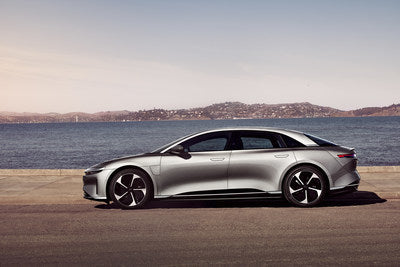Turbulence in the Global Auto Market
The Trump Administration has already disrupted the international auto industry with abrupt tariffs and unpredictable policies aimed at slowing down Chinese automakers. While the stated goal is to re-shore American jobs, the result has been instability for manufacturers worldwide, who are left scrambling to adjust to ever-changing rules.

A Surprising Proposal in the U.S.-EU Deal
Amid this uncertainty, the U.S. and European Union are negotiating a new trade agreement, and one detail stands out: the potential unification of vehicle regulatory standards between the two markets. This move is unprecedented and, if implemented, could dramatically reshape the EV landscape in both regions.
The White House has pushed this idea largely due to poor sales of American pickup trucks in Europe. However, experts argue tariffs aren’t the real issue—European buyers simply don’t want bulky, expensive trucks that are impractical in dense cities. Instead, what could emerge is a renaissance of smaller, more affordable cars entering the U.S. market.
Why Standards Matter for EVs
Historically, U.S. crash and safety regulations have forced automakers to redesign vehicles specifically for American sale—a costly process that has killed off many small car options. The now-discontinued Honda Fit’s extended nose is one example. If standards were aligned, European EVs could reach U.S. buyers more easily, especially since EVs bypass emissions hurdles faced by traditional cars.
But not everyone is convinced. European regulators worry their pedestrian-focused safety rules conflict with U.S. norms, especially given America’s massive trucks with high, flat front ends that pose dangers to pedestrians. On top of that, tariffs on foreign cars and restrictions on China-linked batteries could still complicate matters, even as Europe seeks to reduce reliance on Chinese supply chains.

Political Uncertainty and Consumer Impact
The U.S. government has officially stated its intention to recognize European standards, claiming that cooperation will strengthen the transatlantic marketplace. But whether this promise turns into action remains uncertain. The Trump Administration’s track record on rewriting trade agreements makes many skeptical about long-term follow-through.
If standard unification does happen, Americans could gain access to compact, budget-friendly EVs—cars that are currently locked out of the U.S. market. That could reshape consumer choice, diversify the EV segment, and make electric adoption more affordable.
Recommend Reading: Will Trump’s EV Rollback Set the U.S. Back in Clean Tech?








Share:
Changan’s 930-Mile EV Sets New Benchmark — Is Tesla Losing Its Edge?
Porsche Cayenne EV Debuts with Record-Breaking 400 kW Charging Power